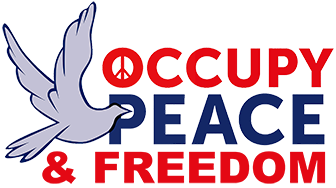A bill introduced in the House this week will mark the third time lawmakers have invoked their war powers during the conflict.
June 1, 2022
Written by Kate Kizer
Amazingly, after nearly eight years of relentless war, the U.N.-negotiated ceasefire has held up in Yemen for the last two months. As the U.N. Special Envoy begins his effort to extend this temporary truce into a longer-term deescalation, Congress once again has the opportunity to retake its war powers authority and provide the president with a tool to end U.S. involvement.
Today, a bipartisan group of House lawmakers, led by Congressional Progressive Caucus Chair Rep. Pramila Jayapal (D-Wash.) and Rep. Peter DeFazio (D-Ore.), introduced a measure to invoke Congress’s war powers “to end unauthorized United States military involvement in Saudi Arabia’s brutal war in Yemen.” Sen. Bernie Sanders will introduce a companion bill when the Senate reconvenes. With the administration and some of its congressional allies toadying to Saudi Arabia and the United Arab Emirates in a shameless attempt to stabilize international energy markets, this war powers resolution on Yemen couldn’t be more timely.
Prior to the current war, most lawmakers (mistakenly) saw Yemen solely through the lens of counterterrorism. Although the conflict is a result of a coup during Yemen’s post-revolutionary transition in September 2014, Washington has largely bought into the false Gulf narrative that the war was instigated by Iran. The Obama administration began backing Saudi Arabia and the UAE’s military coalition, after it intervened in Yemen’s civil war in 2015. Since then, Washington has provided aerial refueling, targeting intelligence, and U.S. advisers without authorization from Congress.
Since the March 2015 intervention, the Saudi and Emirati-coalition has conducted an aerial and ground military campaign that has relied heavily on U.S. weapons, as well as American logistical and intelligence support. The coalition has also enforced a siege against rebel-held territory in Yemen by blocking its air and sea ports, which has severely hampered the import-reliant economy and catalyzed the spiral of Yemen’s pre-existing humanitarian crisis into what the United Nations has called “the world’s worst humanitarian crisis.”
While Houthi forces abuse those living under their corrupt rule, forcibly recruit child soldiers, and launch mortar shells and missiles into civilian areas, the U.S.-supported, Saudi-led coalition has also engaged in a consistent pattern of airstrikes targeting civilian objects and civilian infrastructure, including a school bus full of children, public markets, weddings, port docks and cranes, funerals, Doctors Without Borders hospitals and other medical facilities, camps for internally displaced people, and boats filled with African refugees.
These attacks have a direct correlation to the humanitarian crisis, as the destruction of such vital civilian infrastructure has directly hampered humanitarian and commercial import access to the country, which before the conflict imported nearly 90 percent of its food supply. Civilians have borne the brunt of this crisis, with an estimated 337,000 dead as a result of the fighting, starvation, and disease. Despite progress in gaining humanitarian access to previous frontlines during the current truce, three-quarters of the population, nearly 20 million people, are acutely food insecure.


Recent Comments